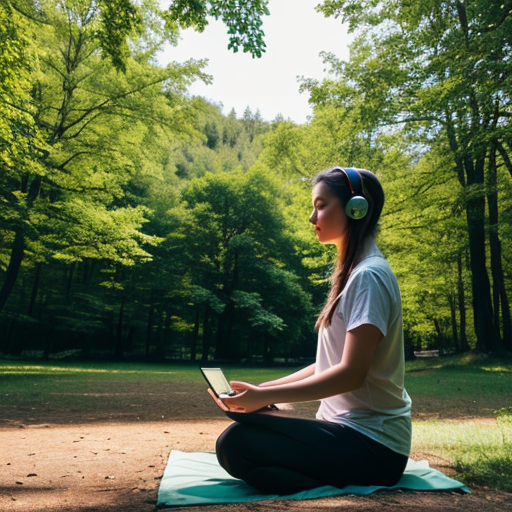In our fast-paced, modern world, finding a moment of peace and relaxation seems like an increasingly distant dream. With constant bombardment from social media, work deadlines, and daily stressors, it’s no wonder that so many of us struggle to unwind.
This article aims to challenge the conventional wisdom on relaxation and offer alternative methods for those who find traditional techniques ineffective or unsatisfying.
One of the most common pieces of advice when it comes to relaxation is to practice mindfulness meditation. While this can be an effective tool for some, studies have shown that it may not work for everyone. For example, individuals with anxious personalities may find their anxiety amplified by focusing on their thoughts and breath.
Moreover, those who prefer more active pursuits might find sitting still for extended periods tedious or boring.
Another popular relaxation method is yoga. While this practice offers numerous physical and mental health benefits, it’s not for everyone. Some people may find the physical demands too challenging, while others might feel excluded from the often spiritual or new-age aspects of the discipline. Moreover, those who prefer a more structured approach to exercise might find the fluid, open-ended nature of yoga frustrating.
A third common suggestion is to engage in hobbies like painting, drawing, or knitting. While these pursuits can indeed be soothing for some, others may struggle to find enjoyment in them. Additionally, those who prefer more high-energy activities might find these pastimes too slow-paced and dull.
So, what’s the solution? We propose that the key to relaxation lies not in finding a one-size-fits-all method but in discovering what works for you as an individual. This means experimenting with various techniques until you find the ones that resonate with your personality and preferences.
For those who prefer more active pursuits, consider engaging in activities such as jogging, swimming, or even weightlifting. These exercises can release endorphins, which promote feelings of happiness and relaxation. Just be sure to find an activity that suits your fitness level and interests.
If you’re the type who enjoys a more structured approach to relaxation, consider trying progressive muscle relaxation (PMR). This technique involves tensing and relaxing each muscle group in your body, one at a time. This process helps release physical tension and promotes mental calmness.
Finally, if you’re someone who struggles with traditional mindfulness meditation due to anxiety or other factors, consider trying guided meditations that focus on visualization or storytelling. These can help distract your mind from racing thoughts and provide a more engaging, entertaining experience.






Leave a Reply